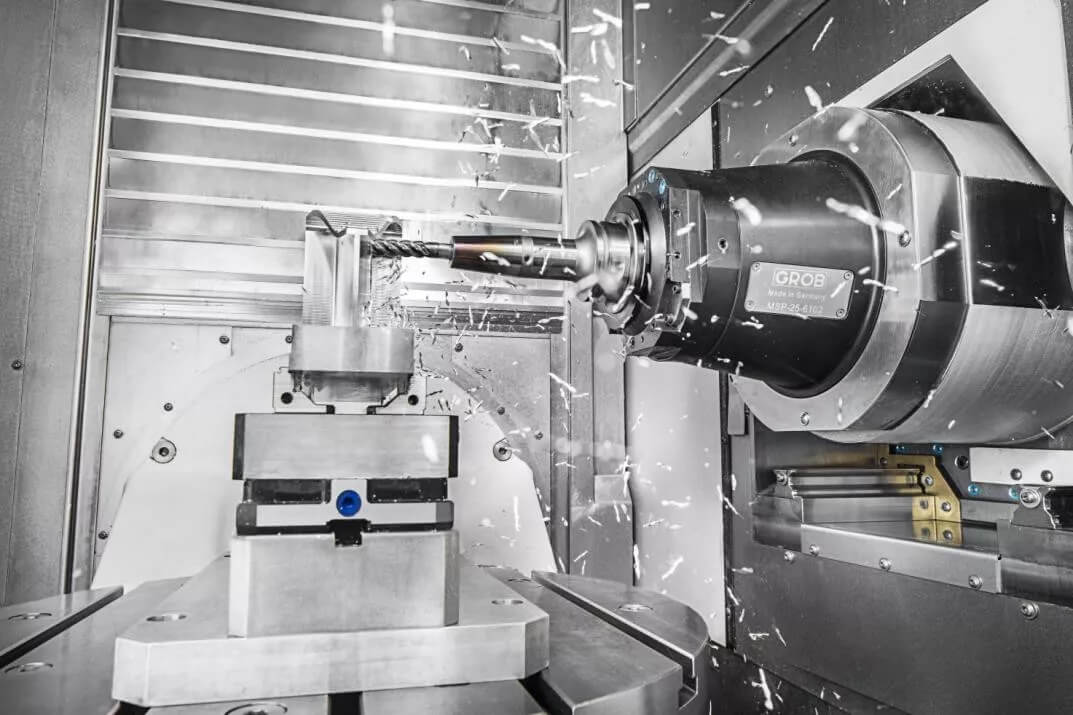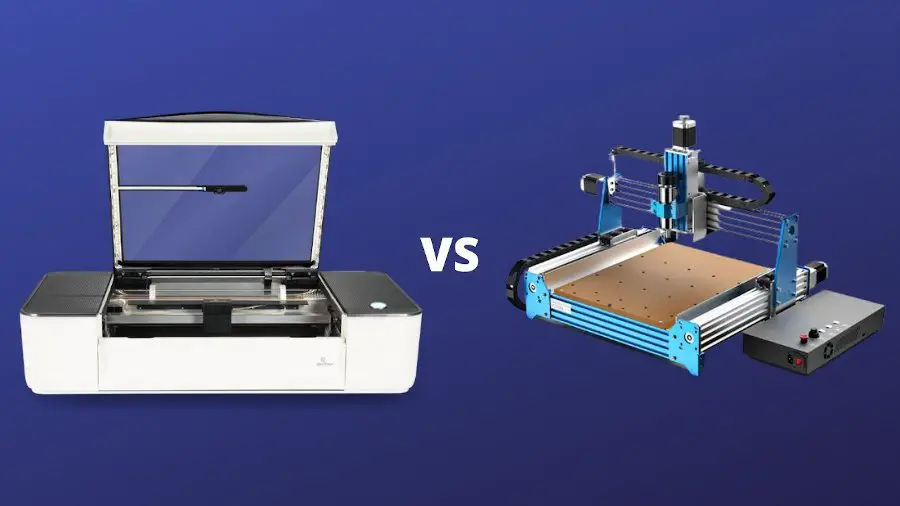CNC machining has revolutionized the manufacturing industry by allowing for precise and efficient production of complex parts. However, many people are still unsure if it qualifies as industrial manufacturing. In this article, we will explore the definition of industrial manufacturing and how CNC machining fits into this category.
Industrial manufacturing refers to the process of creating products on a large scale using machinery, tools, and advanced techniques. CNC machining, with its ability to mass-produce parts with high accuracy and consistency, certainly fits this description. But there are also some factors to consider when determining if it qualifies as industrial manufacturing. Let’s dive in and find out!
CNC machining is a key process in the industrial manufacturing world. It involves using computer-controlled machines to create complex parts and products with precision and accuracy. CNC machining is used in a variety of industries, including aerospace, automotive, and medical device manufacturing. With its ability to produce high-quality parts quickly and efficiently, CNC machining has become an essential part of modern industrial manufacturing.
Is CNC Machining Industrial Manufacturing?
CNC machining has revolutionized the manufacturing industry, but is it considered industrial manufacturing? In this article, we’ll explore what CNC machining is, its benefits, how it compares to traditional manufacturing methods, and whether it is considered industrial manufacturing.
What is CNC Machining?
CNC machining is a manufacturing process that involves the use of computer-controlled machines to produce precise and complex parts. The machines use a variety of tools, such as drills and lathes, to cut and shape materials like metal, plastic, and wood. The machines follow a set of programmed instructions, which dictate the movements and actions of the machine.
CNC machining has become increasingly popular over the years because of its ability to produce high-quality, complex parts quickly and accurately. This has made it an essential part of many manufacturing processes.
Benefits of CNC Machining
There are many benefits to using CNC machining in manufacturing. Here are just a few:
- High precision: CNC machines are incredibly accurate, with the ability to produce parts with tolerances as low as 0.001 inches.
- Efficiency: Because the machines are computer-controlled, they can operate around the clock with minimal supervision, increasing productivity.
- Flexibility: CNC machines can produce a wide range of parts, from simple to complex, with ease.
- Consistency: The machines produce parts that are consistent in quality, size, and shape, reducing the risk of errors and defects.
CNC Machining vs. Traditional Manufacturing Methods
CNC machining is often compared to traditional manufacturing methods, such as manual machining and injection molding. Here’s how they compare:
| Method | Advantages | Disadvantages |
|---|---|---|
| CNC Machining | High precision, efficiency, flexibility, consistency | Higher upfront costs, limited to certain materials |
| Manual Machining | Lower upfront costs, ability to work with a variety of materials | Less precise, slower production times, inconsistency |
| Injection Molding | High volume production, repeatability | More expensive tooling, limited to certain materials, longer lead times |
Is CNC Machining Industrial Manufacturing?
The short answer is yes, CNC machining is considered industrial manufacturing. Industrial manufacturing is defined as the production of goods using machinery and technology, and CNC machining fits that definition perfectly. CNC machines are used in a wide range of industries, from aerospace and automotive to electronics and medical devices.
CNC machining has become an integral part of the manufacturing industry, and its importance is only going to increase as technology continues to advance. Its ability to produce high-quality, complex parts quickly and accurately makes it an essential tool for many businesses.
In conclusion, CNC machining is a form of industrial manufacturing that offers many benefits over traditional manufacturing methods. Its ability to produce high-quality, complex parts quickly and accurately makes it an essential part of many manufacturing processes.
Freequently Asked Questions
Is CNC Machining Industrial Manufacturing?
Yes, CNC machining is a form of industrial manufacturing. It is a process that uses computerized controls and machines to produce a wide range of products with high precision and accuracy. CNC machining involves the use of advanced software programs that control the movements of cutting tools and other machinery, making it an efficient and reliable manufacturing process.
CNC machining is used in a variety of industries, including aerospace, automotive, medical, and electronics. It is capable of producing complex parts and components that would be difficult to manufacture using traditional manufacturing methods. CNC machining is also highly customizable, allowing manufacturers to create products that meet specific requirements and standards.
What are the Advantages of CNC Machining?
One of the main advantages of CNC machining is its high level of precision and accuracy. CNC machines are capable of producing parts and components with very tight tolerances, making them ideal for use in applications that require high levels of precision. CNC machining is also highly efficient, allowing manufacturers to produce large quantities of parts quickly and cost-effectively.
Another advantage of CNC machining is its versatility. CNC machines can be programmed to produce a wide range of products and components, making them suitable for use in many different industries. They are also highly customizable, allowing manufacturers to create products that meet specific requirements and standards.
What Types of Materials can be Used in CNC Machining?
CNC machining can be used to work with a wide range of materials, including metals, plastics, wood, and composites. Some of the most commonly used materials in CNC machining include aluminum, steel, titanium, and brass. CNC machines are capable of working with these materials in a variety of forms, including sheets, bars, and blocks.
Different types of materials require different cutting tools and machining techniques. For example, softer materials like plastics and wood may require a different type of cutting tool than harder materials like metal. CNC machines are capable of adjusting to these differences, making them suitable for use with a wide range of materials.
What is the Difference Between CNC Machining and 3D Printing?
While both CNC machining and 3D printing are used to produce parts and components, they are fundamentally different processes. CNC machining involves the use of cutting tools to remove material from a block or sheet of material, while 3D printing involves the layer-by-layer addition of material to create a 3D object.
CNC machining is capable of producing parts with higher precision and accuracy than 3D printing, making it ideal for use in applications that require tight tolerances. CNC machining is also capable of producing parts from a wider range of materials than 3D printing. However, 3D printing is more versatile in terms of the shapes and designs it can produce, making it a better choice for creating complex geometries and prototypes.
What is the Future of CNC Machining?
CNC machining is a rapidly evolving field, with new advances in technology and software being made all the time. The future of CNC machining is likely to involve even greater levels of precision and efficiency, as well as increased automation and integration with other manufacturing processes.
One trend that is likely to shape the future of CNC machining is the increasing use of artificial intelligence and machine learning. These technologies are capable of analyzing large amounts of data and making decisions in real time, allowing CNC machines to operate more autonomously and efficiently.
Another trend in CNC machining is the increasing use of additive manufacturing techniques, such as 3D printing. These techniques are likely to become more integrated with CNC machining, allowing manufacturers to produce parts with even greater precision and complexity.
In conclusion, CNC machining is undoubtedly a major component of industrial manufacturing. Its ability to create complex and precise parts with speed and accuracy has made it a go-to technology in a wide range of industries. From aerospace to automotive, from medical to defense, CNC machining has become an integral part of the manufacturing process.
However, it is important to note that CNC machining is just one aspect of industrial manufacturing. While it may be a significant part of the process, it is not the only technology used. Other technologies such as 3D printing, injection molding, casting, and forging are also used to create various parts and products.
In the end, the answer to whether CNC machining is industrial manufacturing is a resounding yes. But it is important to remember that it is just one aspect of a much broader industry that relies on a variety of technologies and techniques to create the products we use every day.
Request a quote today!
[contact-form-7 id="1578" title="Contact form"]
Please compress the file into a ZIP or RAR file before uploading. Alternatively, send through your RFQ by email.
enquires@unitymanufacture.com





